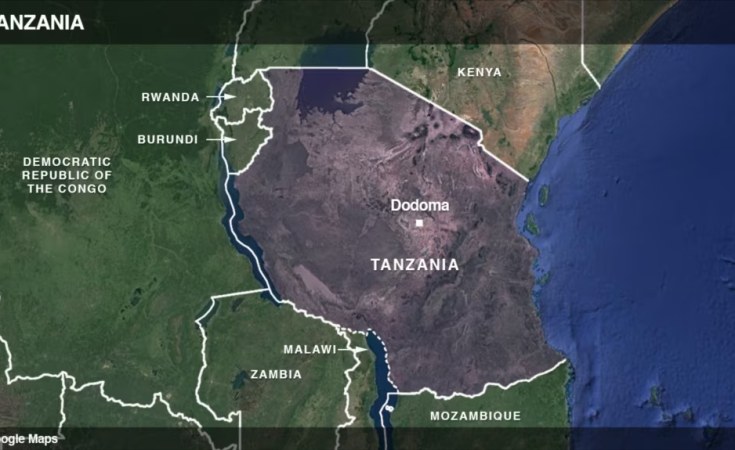Dar es Salaam, Tanzania — Health officials in Tanzania are investigating an illness that killed five people in the country's northwest with Ebola-like symptoms, raising fears that it could be the deadly virus.
Tanzania's Ministry of Health late Thursday issued a statement saying seven people in northwest Kagera region showed symptoms such as fever, vomiting, bleeding and kidney failure.
The ministry sent audio comments by Chief Medical Officer Tumaini Nagu to media.
She said rapid response teams at the regional and council level have been sent to probe the unknown disease to understand and analyze it further. Nagu said samples have been taken from patients to identify the source of the disease.
Social media posts in Tanzania noted the symptoms were like those for Ebola, a deadly virus that causes high fevers, severe bleeding, and organ failure.
Kagera borders Tanzania's northern neighbor Uganda, which had an outbreak of the rare Sudan strain of Ebola from September last year to January that was blamed for 77 deaths.
Albert Chalamila, regional commissioner of Kagera, said in audio comments that his office sent to the media that officials are taking precautions.
Chalamila said they have continued to educate residents regarding the importance of taking all necessary precautions, including for COVID-19 and other illnesses such as Ebola. He said so far there are no reports of anyone having contracted the Ebola virus.
Tanzania is not unfamiliar with rare and mysterious diseases but has never recorded a case of Ebola.
An outbreak in the southeast last year of leptospirosis, a bacteria spread by rat urine, sickened 20 people and caused three deaths.
In 2019, a disease with Ebola-like symptoms that killed one woman who had visited Uganda led the WHO to question the government's response and lack of sharing information.
At the time, the neighboring Democratic Republic of Congo was struggling with an Ebola outbreak that was the second largest on record, lasted nearly two years and killed more than 2,000 people.


